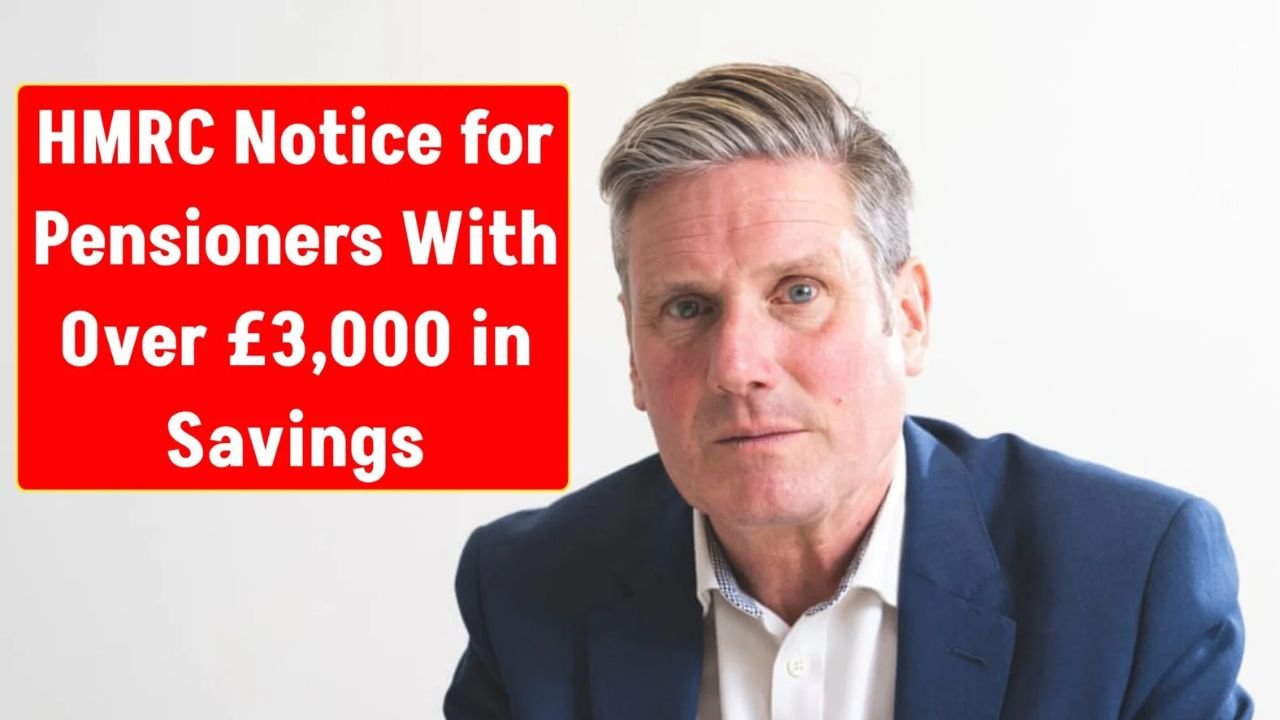If you’re a UK pensioner with savings over £3,000, you might have received a notice from HM Revenue and Customs (HMRC) in 2025. These letters can feel daunting, but they’re about ensuring you’re paying the right tax on your savings and benefits. With rising living costs, understanding these notices is key to avoiding unexpected tax bills or benefit changes. This guide breaks down why HMRC is contacting you, what the £3,000 figure means, and how to respond— all in clear, simple terms to keep you informed and stress-free.
Why Is HMRC Sending These Notices?
HMRC is reaching out to make sure pensioners are correctly reporting and paying tax on their income, including interest from savings. While your State Pension is taxable, most pensioners don’t pay tax on it unless their total income exceeds the Personal Allowance (£12,570 for 2024/25). However, savings interest, dividends, or investment returns can push you over this threshold, triggering a tax bill. These notices aim to catch discrepancies and ensure accurate tax and benefit calculations.
What Does the £3,000 Savings Figure Mean?
The £3,000 figure isn’t a tax threshold, but it’s a level where HMRC starts checking for potential tax or benefit issues. If your savings exceed £3,000, the interest you earn might surpass your Personal Savings Allowance (PSA), which determines how much interest you can earn tax-free. For 2024/25, the PSA is:
- Basic rate taxpayers: £1,000 tax-free interest.
- Higher rate taxpayers: £500 tax-free interest.
- Additional rate taxpayers: £0 tax-free interest.
For example, £3,000 at a 5% interest rate earns £150 annually—well below the PSA for most—but larger savings or higher rates could tip you over, prompting an HMRC notice.
How HMRC Tracks Your Savings Income
Banks and building societies now send your savings interest data directly to HMRC, so you usually don’t need to report it yourself. However, notices may arrive if:
- There’s a mismatch in reported interest.
- Accounts like investments, credit unions, or overseas savings aren’t automatically reported.
- Your tax code needs adjusting to account for extra income.
If you have accounts that don’t report to HMRC, you’ll need to declare that income via Self Assessment or by contacting HMRC directly.
How Savings Affect Pension Credit and Other Benefits
Your State Pension isn’t affected by savings, but means-tested benefits like Pension Credit, Housing Benefit, and Council Tax Reduction can be. For Pension Credit:
- Savings up to £10,000 are disregarded.
- Above £10,000, every £500 is assumed to generate £1/week of income, reducing your benefit.
While £3,000 is below this threshold, HMRC’s checks at this level help ensure accurate reporting, and the DWP may cross-reference this data to adjust benefits.
Why You Might Get a Notice
HMRC sends notices for several reasons, including:
- Higher-than-expected interest reported by your bank.
- Missing or inconsistent savings data.
- Past underpayment of tax on savings income.
- Need to adjust your tax code or confirm benefit eligibility.
Receiving a notice doesn’t always mean you owe tax—it might just be a request to verify details.
What to Do If You Get a Notice
Don’t panic if an HMRC notice lands in your mailbox. Here’s what to do:
- Read it carefully: It’ll explain why it was sent and what’s needed.
- Confirm interest: Check your savings accounts to verify reported amounts.
- Provide missing info: Report any unreported accounts via Self Assessment or HMRC’s helpline.
- Pay owed tax: If you’ve exceeded your PSA, settle any tax due.
- Update tax code: HMRC may adjust it to collect tax automatically.
Respond promptly to avoid penalties or interest charges, which can hit 8.5% for late payments in 2025.
How to Check Your Savings Interest
Before replying to HMRC, gather your financial records to calculate your interest from:
- Bank and building society accounts.
- Fixed-term deposits or bonds.
- National Savings & Investments (NS&I) products, like Premium Bonds.
- Credit union or overseas accounts.
- Investment income, such as corporate bonds.
Cross-check these with HMRC’s figures to ensure accuracy and spot any errors.
Tips to Avoid Future Tax Issues
Stay ahead of HMRC notices with these steps:
- Track your income: Keep records of all savings and investment interest.
- Use a Personal Tax Account: Sign up on HMRC’s website to monitor your tax status.
- Update account details: Notify HMRC of new savings accounts promptly.
- Consider ISAs: Up to £20,000/year in ISAs earns tax-free interest.
- Seek advice: Consult a financial adviser for complex savings or investments.
Good organization can save you from surprises down the road.
What If You Disagree with HMRC?
If you think HMRC’s notice is incorrect, you can challenge it:
- Request an explanation: Ask for details on their calculations.
- Seek mandatory reconsideration: If still unresolved, formally request a review.
- Appeal to a tribunal: As a last step, take your case to an independent tax tribunal.
Act within the deadlines on your notice (usually 31 January) to avoid complications.
Digital vs. Paper Notices
HMRC is pushing digital communication through Personal Tax Accounts, but paper letters are still sent to those without online access. You can opt for paper notices if preferred, though digital accounts offer faster updates. Set up your Personal Tax Account on GOV.UK to stay on top of notices and tax details.
| Key Details | Description |
|---|---|
| Savings Threshold | £3,000 (HMRC checks for interest or benefit issues) |
| Personal Savings Allowance | £1,000 (basic rate), £500 (higher rate), £0 (additional rate) |
| Affected Benefits | Pension Credit, Housing Benefit, Council Tax Reduction |
| What to Do | Check interest, respond to notices, update HMRC |
| How to Respond | Online, phone, or post; use Personal Tax Account for ease |
Why This Matters for Pensioners
These HMRC notices are a wake-up call to keep your savings and tax obligations in check. Even modest savings can generate taxable interest, and overlooking this could lead to penalties or reduced benefits. By responding quickly and staying organized, you can avoid financial stress and ensure you’re paying the right tax while keeping your benefits intact.
FAQ: Your HMRC Notice Questions Answered
Why did I get an HMRC notice?
It’s likely due to savings interest, tax code adjustments, or benefit cross-checks.
Does £3,000 in savings mean I owe tax?
Not necessarily—it’s a trigger for HMRC checks, but tax depends on your interest and PSA.
How do I check my savings interest?
Review bank statements, NS&I accounts, or investment records for annual interest.
What if I ignore the notice?
You risk penalties, interest charges (8.5% in 2025), or benefit reductions.
Can I challenge HMRC’s decision?
Yes, request a reconsideration or appeal to a tribunal within the notice’s deadline.




